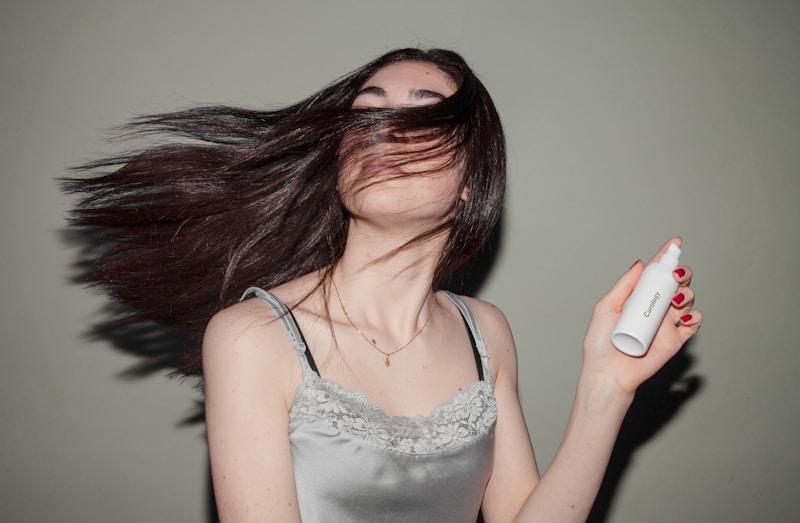Hair Combs for Traditional Ceremonies: A Timeless Accessory
In the realm of traditional ceremonies, the significance of cultural artifacts cannot be understated. Among these artifacts, hair combs hold a special place, symbolizing beauty, tradition, and cultural heritage. This article delves deep into the world of hair combs for traditional ceremonies, exploring their history, significance, types, and their role in various cultures around the globe.
The Historical Significance of Hair Combs
Hair combs date back thousands of years, with their use noted in ancient civilizations across continents. From the ornate ivory combs in ancient Egypt to the simple wooden combs of indigenous tribes, these accessories have aided in grooming while also serving as symbols of status and tradition. In many cultures, combs are not just practical items but instead are steeped in cultural narratives.
Hair Combs in Different Cultures
The design and use of hair combs vary widely across different cultures, each carrying unique symbolism:
| Culture | Type of Comb | Symbolism |
| Japanese | Oshiroi Comb | Beauty and elegance in ceremonies |
| Chinese | Qing Dynasty Comb | Fertility and marital harmony |
| Indian | Brass or Wooden Comb | Purity and auspiciousness |
| Native American | Beaded Comb | Spiritual connection and identity |
Types of Hair Combs Used in Traditional Ceremonies
When it comes to traditional ceremonies, not all hair combs are created equal. The type of comb used often depends on the cultural context and the specific ceremony being celebrated. Let’s explore some popular types:
1. Ornamental Combs
Often embellished with jewels, intricate carvings, or colorful designs, ornamental combs are commonly used in formal events such as weddings. These combs serve as both a functional item and a statement piece, reflecting the elegance of the wearer.
2. Functional Combs
While some hair combs are purely decorative, others serve practical purposes. Functional combs are designed to help in grooming, particularly in intricate hairstyles needed for traditional attire. These combs are usually less ornate but are made from durable materials that withstand the rigors of styling.
3. Symbolic Combs
In some cultures, certain combs are imbued with spiritual meanings. For instance, in parts of Asia, combs may be used in rituals to invoke blessings for fertility and prosperity in marriages, ensuring a powerful connection between the comb and the purpose of the ceremony.

The Role of Hair Combs in Modern Traditional Ceremonies
Even in today’s modern world, hair combs continue to play an essential role in traditional ceremonies. They are often part of elaborate hairstyles worn by brides, participants in cultural festivals, and during religious rites. The careful selection of the right hair comb can enhance the overall aesthetic, making it a vital touch in completing traditional attire.
Factors to Consider When Choosing Hair Combs for Ceremonies
Choosing the right hair comb for a traditional ceremony can be a significant decision. Here are some important factors to consider:
1. Cultural Authenticity
It is crucial to select a hair comb that reflects the specific culture and tradition of the ceremony. Research the types and styles of combs that are culturally appropriate to ensure that the accessory honors the heritage it represents.
2. Material
Hair combs can be made from various materials including wood, metal, ivory, and plastic. Each material has its significance and aesthetic appeal. For example, wooden combs are often seen as traditional and are favored for their durability and authenticity.
3. Design
The design of the comb should complement the hairstyle and the outfit being worn. Ornate designs may be preferred for formal occasions, while simpler designs might be more suitable for casual ceremonies.
4. Practicality
Consider the functionality of the comb. If the hairstyle is intricate and requires secure placement, a functional comb would be better suited than a purely decorative one.
Where to Buy Quality Hair Combs for Traditional Ceremonies
Finding the perfect hair comb entails knowing where to look. Here are some top places to consider:
1. Local Artisan Markets
Local markets often feature artisans who specialize in traditional crafts. Purchasing directly from them not only ensures authenticity but also supports the local economy.
2. Online Specialty Stores
Numerous online stores cater specifically to traditional accessories, offering international shipping options. This is an excellent way to find unique pieces that may not be available locally.
3. Cultural Festivals
Cultural festivals frequently showcase traditional merchandise, including hair combs. Attending these events can provide opportunities to discover rare finds while immersing oneself in the culture.
Embracing the Tradition
Choosing to incorporate hair combs into traditional ceremonies is about more than just aesthetics; it is a way to honor the past and embrace cultural identity. It connects generations, often being passed down as family heirlooms that signify strength and heritage.
Conclusion
Hair combs for traditional ceremonies are intrinsic to cultural celebrations across the globe. They carry stories, traditions, and values that transcend time. When selecting a hair comb, consider its cultural significance, material, and practicality to enhance the ceremonial experience. Whether you’re participating in a wedding, a festival, or any traditional event, the right hair comb can elevate your appearance while allowing you to express your cultural pride. Remember to respect the traditions behind these beautiful accessories while ensuring they add a personal touch to your ceremonial attire.
As you explore your options for hair combs for traditional ceremonies, keep in mind the importance of cultural representation and personal expression. Understanding the meanings behind these accessories will enrich your experience, making your chosen comb a meaningful part of any ceremony.